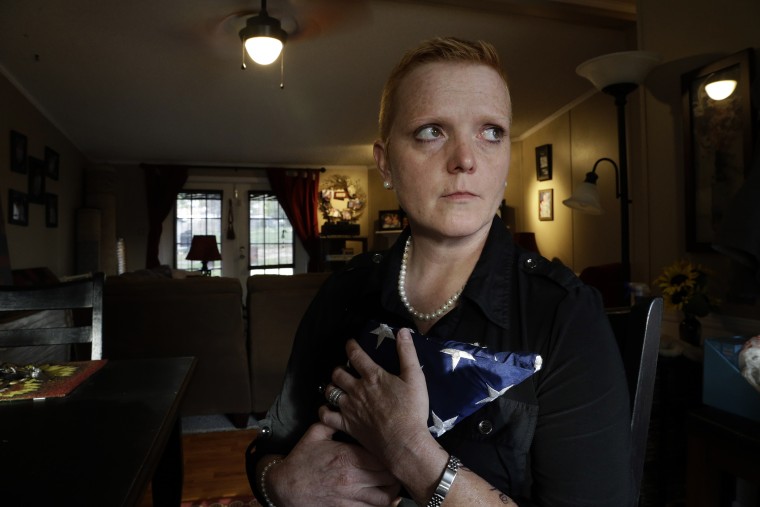The wife of a female soldier killed in Afghanistan will receive full death benefits, a victory for same-sex military spouses and marriage equality advocates.
Tracy Dice Johnson announced on May 17 that the Department of Veterans Affairs had granted her the benefits, according to a report by the Army Times. The report also notes that Dice Johnson and her wife are believed to be the first same-sex married couple affected by a casualty after the military ended its “don’t ask don’t tell” policy barring gay individuals from serving in the armed forces.
“It was a long, drawn-out process, but at the end of the day, hearts and minds prevailed,” she said, speaking at an event for the American Military Partner Association, a group dedicated to helping LGBT military spouses and their families.
Dice Johnson’s wife, Donna Johnson, was killed in Afghanistan by a suicide bomber on October 1, 2012. The benefits will be retroactive to her wife’s death, eight months before the Supreme Court overturned the federal Defense of Marriage Act. The two were married in February of 2012.
Don't Ask Don't Tell was officially repealed in 2011, but spouses have struggled since then to access the same benefits as heterosexual couples, much like many civilian LGBT couples.
Even as marriage equality issues have advanced in the military, transgender men and women are still barred from serving openly in the military. Last week, Secretary of Defense Chuck Hagel said he was open to reviewing that ban but stopped short of calling for any policy changes.
